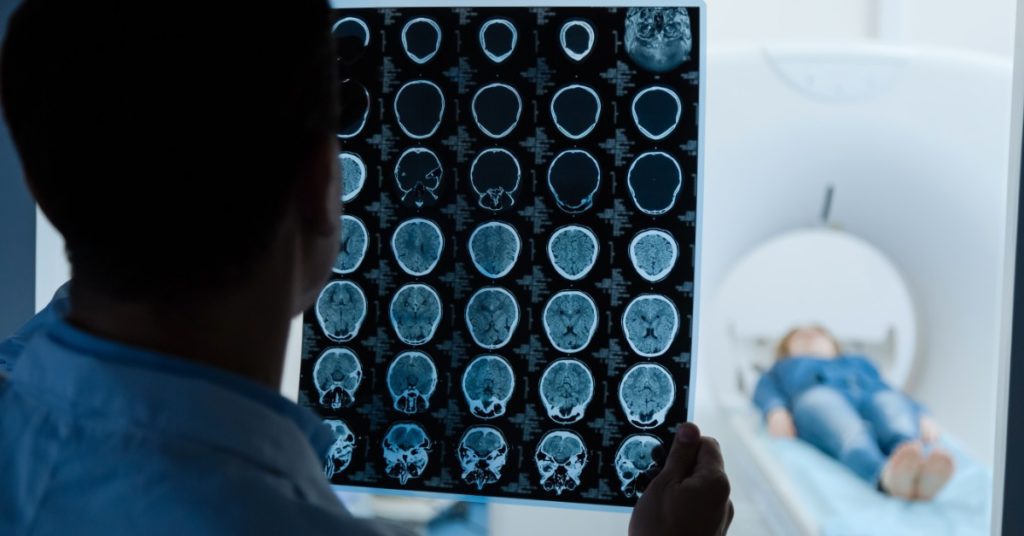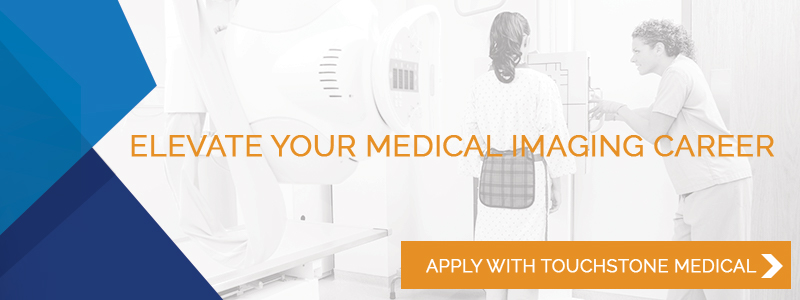Many people are apprehensive about any medical procedure, then throw in a giant machine that will yield results you may not want to hear and it’s a recipe for anxiety. At Touchstone Imaging, we very much believe that information is empowering and when you know what to expect it can help quell your fears and even make you look forward to your MRI. Couple that with our friendly, supportive staff who work tirelessly to make our patients as comfortable as possible, and you’ve got a positive medical imaging experience.
Join us in today’s post as we answer some of the most frequently asked MRI questions to help put you at ease.
What is an MRI?
MRI is an acronym that stands for Magnetic Resonance Imaging. MRI is a medical imaging technology that uses a large magnet to view your internal organs, blood vessels, muscles, joints, tumors, and other soft tissues, without the use of radiation.
Why am I getting an MRI?
Your medical provider is likely ordering an MRI in addition to other diagnostic tests to help rule out a suspected condition, take a closer look at something that an x-ray or ultrasound detected, or to follow-up to ensure your current treatment plan is effective. Your doctor will discuss the specific reasons with you. Typically, an MRI is performed when an x-ray or other medical imaging procedures were either normal or showed something, but could not provide the detail of the soft tissues that an MRI offers.
Is it dangerous?
Generally speaking, no, an MRI is not dangerous. Because it uses a large magnetic field to produce images, there is no radiation exposure. There are potential dangers for people with a pacemaker, cochlear implants, and other metal implants, however, there are special MRI machines that can be used and not all devices make an MRI unsafe. Your MRI technician will complete a thorough questionnaire prior to your exam to make sure that you are safe.
Do I need to do anything special to get ready for my MRI?
For the most part, no. You may be asked to change into a hospital gown for the procedure and remove your jewelry, but as far as hygiene, grooming, eating, and medications, you should not have to deviate from your normal routine.
Are there different kinds of MRIs?
Yes! The technology of medical imaging and MRI has advanced significantly in the last decade. There are now all sorts of different MRI machines that can accommodate various needs including patient size and physical limitations. There are also varying Tesla ratings in different machines.
Each machine can perform a variety of imaging procedures. For example, a breast MRI looks specifically at breast tissue to help detect lumps. MRA is an MRI that looks specifically at blood vessels. And, the latest innovation in Alzheimer’s treatment is the NeuroQuant imaging software.
How long will the MRI take?
The length of your MRI depends on what type of imaging study is being done. Generally, the actual testing time is between 20 and 60 minutes. You may be at your appointment longer with prep time or if you are having multiple studies done. When you schedule your appointment, ask your scheduler for a more accurate timeline.
How quickly will my doctor have the results?
Once your MRI is completed, our radiologists will interpret the images and create a report for your medical provider. Your physician’s office will typically receive the report within 24 hours.
Will it hurt?
No, the MRI is non-invasive and painless.
Can I get an MRI if I am pregnant or breastfeeding?
The effects of an MRI on an unborn child are unknown. There are no known consequences, but to be safe, we do not perform MRI on pregnant women unless medically necessary. Breastfeeding is perfectly safe, however, if you have an MRI with contrast, you should wait 24-48 hours after contrast injection to breastfeed.
I have rods in my legs, can I still get an MRI?
It depends. Set metal may not pose a problem and is likely MRI-rated to a certain Tesla (0.5T- 3.0T). As long as the artificial joint or rod has been implanted for longer than six months, it typically does not pose a problem, but your radiology technician will provide more information about your specific case. Metal in the body can skew MRI images, but this varies depending on the type of metal. Titanium affects MRI images very little, while stainless steel and alloy can cause shadowing on the final images.
At Touchstone Imaging, we know that you likely have many questions about your upcoming MRI. Medical imaging is our sole service, so when you ask your questions to our staff, you can bet you are getting evidence-based answers that are backed by research and experience. We are accredited by the American College of Radiology as the gold standard for MRI services. For all of your MRI questions, connect with us online or find a location near you to schedule your MRI.


